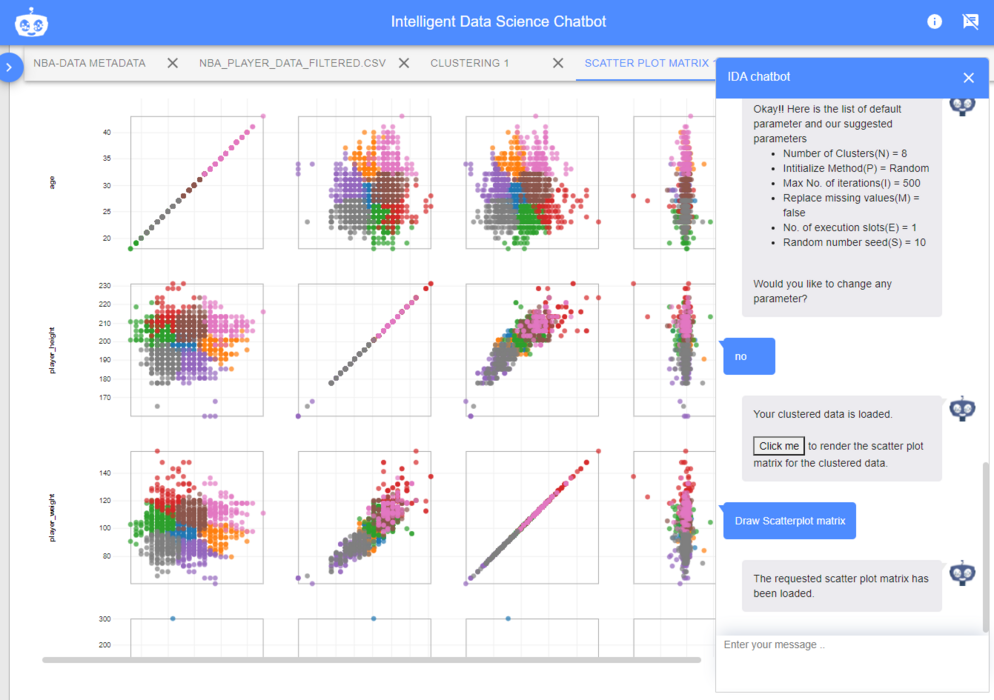Data analysis made easy: The aim of an intelligent chatbot, developed within the scope of a research project at Paderborn University, is to allow users to evaluate large data volumes quickly and easily. As a rule, more expensive tools, programming skills, and experts are required for this purpose, which is a cost factor that should not be underestimated, particularly for small and medium-sized enterprises. Created as a web-based platform, the chatbot helps users perform independent analysis of their data. The “Intelligent Data Science Chatbot” project, now concluded, was ensconced in the “Software Campus” research program, the goal of the latter being to train future IT executives as well as to promote innovative research projects. The funding measure forms part of the High-Tech Strategy IKT 2020 of the Federal Ministry of Education and Research (FMER).
Professor Axel-Cyrille Ngonga Ngomo, head of the “Data Science” specialist group, explains: “Users can upload their own data to the platform for analysis. In the process, they interact with the chatbot via natural speech in the form of text messages in order to control the application. The commands and applications contained in such messages are forwarded to the backend. Various visualisations, tabular views of data sets, and clustering processes are available as analysis tools. In a cluster analysis the data are broken down in previously selected columns into clusters, i.e. groups, based on their similarities. The chatbot also supports users by making recommendations.”
Professional data analysis tools continue to be difficult for average users to operate. This is where the chatbot, which already exists as a prototype, can help: “It is almost as if end users are communicating with a personal assistant conducting the data analysis in the background. That not only facilitates access, it also saves a considerable amount of time”, explains Michael Röder, head of the Data Analysis Group in Ngonga’s team. The web-based structure also allows modern forms of dissemination, for instance with a software-as-a-service model, in which users all over the world can interact with the chatbot through an Internet connection and a web browser. No additional software must be installed on the end device. “That also makes it simpler to upgrade the chatbot, as updates and upgrades can be installed centrally”, adds Röder.
According to Project Manager Nikit Srivastava, the prototype can make a particularly significant contribution to the digitalisation of medium-sized enterprises thanks to its low-threshold mode of operation. The findings acquired in the data analysis could be directly applied in the company, e.g. for optimising internal workflows. An initial evaluation has already shown that the chatbot fared better with the test persons compared with two commonly used data analysis programs.




